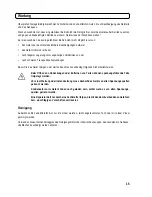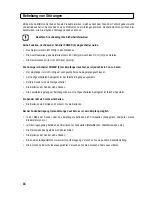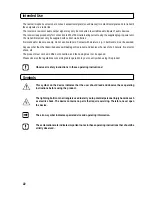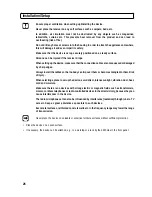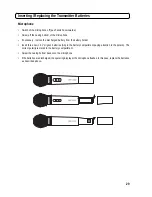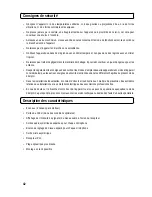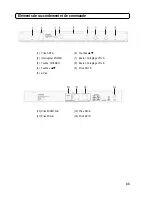
28
Connection
Mains Connection
The mains outlet to which the power unit is connected must be easily accessible so that the
power unit can be separated from the mains voltage quickly in case of an error.
Do not let the mains cable come into contact with any other cables.
Be careful when handling the mains cables and mains connection. Mains voltage can lead to
a fatal electric shock.
Make sure that no cables lie open. Install cables professionally to prevent accidents.
Ensure that the receiver is switched off (the POWER switch (2) must not be pressed), before
connecting it to the power supply.
• Connect the power unit connection line to the receiver’s DC IN (13) socket.
• Plug the power supply into the wall socket.
• The receiver is turned on and off at the POWER (2) switch.
Switch depressed: Device on, switch not depressed: Device off
Inserting / Replacing the Transmitter Batteries
Keep batteries out of the reach of children.
Make sure that the polarity is correct when inserting the batteries.
Remove the batteries when the device is not being used for long periods of time.
Do not leave batteries lying around openly. There is a risk of them being swallowed by children
or pets. If swallowed, consult a doctor immediately.
Leaking or damaged batteries may cause caustic burns if they come into contact with skin.
Therefore, you should use suitable protective gloves.
The batteries may not be short-circuited or thrown into a fire, Do not attempt to recharge the
batteries. There is a danger of explosion!
Do not use batteries with a different charging status or from different manufacturers at the same
time.


